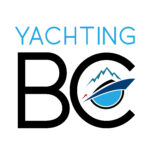welcome to british columbia


Oceans Initiative is both a US 501c3 non-profit and a registered Canadian charity. We are proud of the cost-effective conservation science we are conducting on this neglected species, but there is so much left to discover. Based on our track record of careful, ethical science, Fisheries and Oceans Canada has given us a 3-year permit to conduct conservation research on Pacific white-sided dolphins.
Photos: Ryan Tidman
For the last few years, we have been giving dolphins the equivalent of a Covid test. By placing Petri dishes on long pool net poles and positioning them above a dolphin’s blowhole, we are learning which viruses, fungi, and bacteria are carried around in a dolphin’s lungs, and which ones could be transmitted to endangered killer whales -- or humans! In addition, we are carrying out research on how to help dolphins avoid dangerous fishing gillnets through the use of alarm bells, or ‘pingers’.
These pingers can light up a gillnet acoustically, so the dolphin knows there is an object to be avoided. Using carefully chosen sounds, we can deter dolphins and save them and their calves from becoming mortally entangled or wounded. Once we are able to optimize the effective signal within these pingers, we could apply this to other oceanic dolphins species who are more difficult to access.


Canada’s endangered species legislation uses “best available science” to prevent extinctions, but we risk losing species when science isn’t available or good enough to inform precautionary decisions about fishing, tourism, or other resource management issues.
Our co-founder, Dr. Erin Ashe, calls this risk the “data-gap trap.”
Erin launched the Pacific white-sided dolphin ecology program in 2008 in the Broughton Archipelago to advance our understanding of the importance of Pacific white-sided dolphins to the greater ecosystem and inform their conservation.
Although the species is charismatic, acrobatic, and impossible to ignore, their conservation status has not been assessed since 1990. Even then, there was no information on population size or trends, or threats to recovery.
We knew only that high-seas fisheries for squid and salmon killed hundreds of thousands of these dolphins in the 1980s and 1990s. Our science is collecting the data needed to evaluate whether the population is healthy or in trouble.



Without science, we can’t tell whether a population is declining and warrants a legal listing; without a legal listing, there is no funding for the science to detect declines, so the declines go unnoticed until it becomes a crisis. At Oceans Initiative, we conduct proactive, low-cost science to inform conservation decisions to protect biodiversity, before it’s too late.

Our top priorities for 2023 are to:
1. vastly expand our photo-ID efforts in the field.
2. Use machine learning algorithms to help us match new photographs to our catalogue of more than 1000 individually recognizable dolphins.
3. Use the data to estimate size and trends of dolphins in the Broughton Archipelago.
4. Explore the use of non-invasive, suction-cup tags with attached cameras to understand how dolphins hunt, avoid nets, and avoid predation by mammal-eating killer whales.
HMC Mattressess
HMC is a family-owned, fourth-generation boat bed manufacturer founded on the traditions of quality and service. As avid boaters ourselves, we understand what you want in a mattress: design, durability and comfort.
Menu
